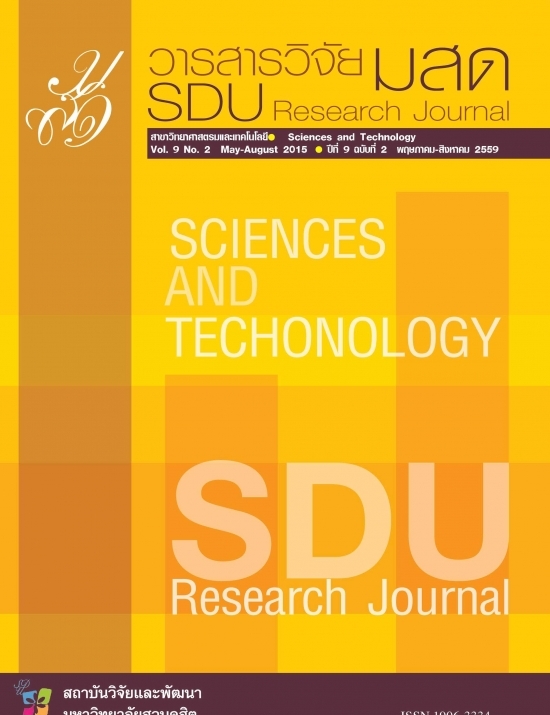Cytotoxic Activity of Curcuminoids and Curcuminoid Analogues Against Human Oral Cancer KB Cells**
Keywords:
Curcuminoid analogues, Structural modification, Cytotoxicity, Oral cancerAbstract
The natural curcuminoids, curcumin (1), demethoxycurcumin (2) and
bisdemethoxycurcumin (3), have been structurally modified to the demethylated
analogues 4-6, methylated analogues 7-12, acetylated analogues 13-17 and the tetrahydro
analogues 18-21. The curcuminoids 1-3 and the analogues 4-21 were evaluated for their
cytotoxic activities against a human oral cancer (KB) cell line. The demethylated analogues
4-6 and methylated analogues 7-8 exhibited high cytotoxic activities against KB cells with
IC50 values of 7.76, 2.38, 8.17, 7.11 and 3.85 μM, respectively. Interestingly, the analogue
5 exhibited the highest cytotoxicity (IC50 value 2.38 μM), which was more potent than
ellipticine, the reference anticancer drug (IC50 value 5.40 μM). For the acetylated
analogues, the results showed that acetylation did not increase cytotoxicity of the parent
curcuminoids. Furthermore, it was also found that the tetrahydro analogues were inactive
in this study. The results indicated that conjugated diketo system is essential for
cytotoxicity. Analogues with more of free hydroxyl groups were more potent than the
natural curcuminoids, with exception for the mono-O-methyl and di-O-methyl analogues
of curcumin.








